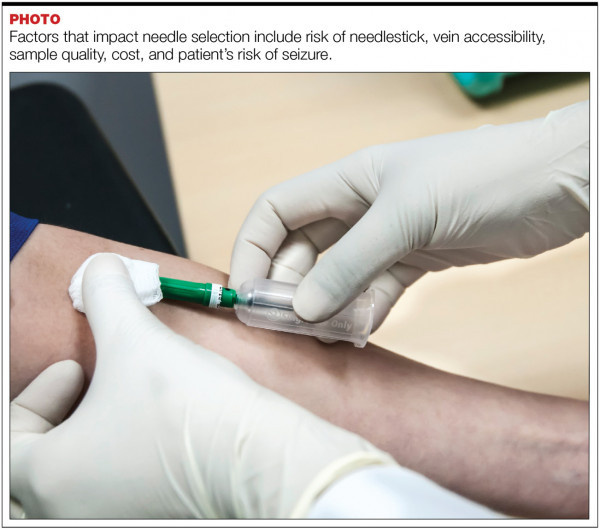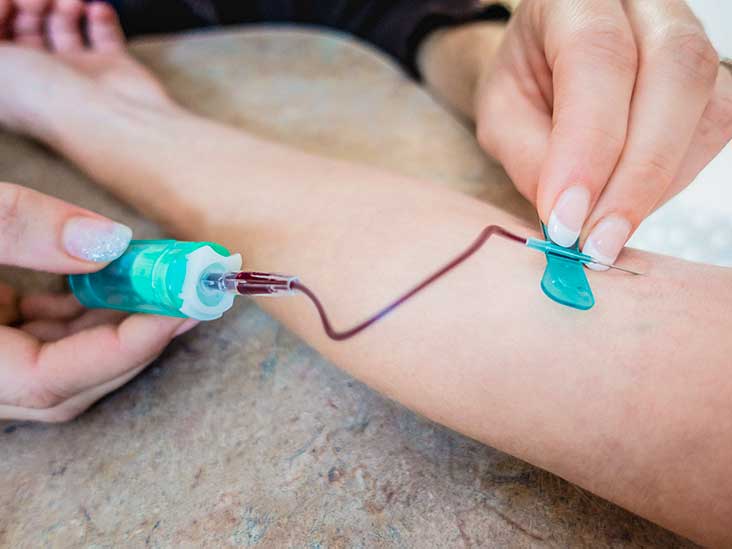Types Of Needles For Blood Drawing
Types Of Needles For Blood Drawing - It consists of a hollow stainless steel needle attached to a plastic hub. They are sterile and sealed with a paper tab. Web vacutainer needles are available in various sizes ranging from 19 to 22 gauge. A phlebotomist has three needle options when doing venipuncture: In the realm of medical procedures, especially blood drawing, the choice of the right tool can make a significant difference. The first step in drawing blood correctly is to identify the appropriate veins to puncture. Web straight needles are commonly available in 21 and 22 gauge. It has a rubber sleeve at one end. Web the 21 gauge needle is the standard gauge needle for drawing blood. Web like many other medical devices, there are different blood draw needle types. As the name suggests, this needle offers a complete system for drawing blood into a vacuum blood collection tube. Evacuated needles are the most common, with hypodermic. While it might sound straightforward, the implications and value of this. Web a person drawing blood may choose a butterfly needle when drawing blood for the following purposes: Web the standard needle for. It has a rubber sleeve at one end. In this article, we will. It’s large enough to allow. This size is chosen for a good reason. While it might sound straightforward, the implications and value of this. Multiple drawing (evacuated), hypodermic, or butterfly needles. The one chosen will depend on whether the person doing the blood test has good veins or difficult veins. This allows for customization based on your patient’s vein size and the required. However, improper technique can lead to complications. A phlebotomist has three needle options when doing venipuncture: Blood collection needles have beveled tips and are typically available in 20, 21, and 22 gauges and 1 to 1.5 inches. It’s large enough to allow. For adult patients, the most common and first. Those veins are usually big enough for the use of. Phlebotomy, fundamentally, is the act of puncturing a vein to draw blood. The one chosen will depend on whether the person doing the blood test has good veins or difficult veins. Web table c.1 devices for drawing blood. Web like many other medical devices, there are different blood draw needle types. Web types of needles for drawing blood. In this article, we will. They have a smaller gauge needle than. Blood collection needles have beveled tips and are typically available in 20, 21, and 22 gauges and 1 to 1.5 inches. Web straight needles are commonly available in 21 and 22 gauge. This design allows for a gentler insertion into the. Most adults who are healthy have plump and bouncy veins. The generally accepted benefits of straight needles include needle stick reductions, quality venous samples, and. Multiple drawing (evacuated), hypodermic, or butterfly needles. The most common types include: Web butterfly needles provide a fast, relatively painless way to collect blood for most patients compared to straight needles. This allows for customization based on your patient’s vein size and the required. This design allows for a gentler insertion into the. A venipuncture is when a phlebotomist. Web the 21 gauge needle is the standard gauge needle for drawing blood. Web winged infusion sets, or butterfly needles, are designed to be the most comfortable option for drawing blood. In this article, we will. The first step in drawing blood correctly is to identify the appropriate veins to puncture. Web the 21 gauge needle is the standard gauge needle for drawing blood. Web blood collection needle pen types vary in needle gauge, needle length, and safety features. For adult patients, the most common and first. A phlebotomist has three needle options when doing venipuncture: This design allows for a gentler insertion into the. In the realm of medical procedures, especially blood drawing, the choice of the right tool can make a significant difference. Those veins are usually big enough for the use of. A venipuncture is when a phlebotomist. Web the “butterfly needle” or vacuette® safety blood collection set is a blood collection device. As the name suggests, this needle offers a complete system for drawing blood into a vacuum blood collection tube. The size of the needle matters. The first step in drawing blood correctly is to identify the appropriate veins to puncture. Web winged infusion sets, or butterfly needles, are designed to be the most comfortable option for drawing blood. Web the “butterfly needle” or vacuette® safety blood collection set is a blood collection device commonly used in hospitals and clinics to collect blood from. Blood collection needles have beveled tips and are typically available in 20, 21, and 22 gauges and 1 to 1.5 inches. Those veins are usually big enough for the use of. The vacutainer needle is widely used for blood collection. While it might sound straightforward, the implications and value of this. Each one is designed with specific procedures in mind. The one chosen will depend on whether the person doing the blood test has good veins or difficult veins. Web the 21 gauge needle is the standard gauge needle for drawing blood. They are sterile and sealed with a paper tab. In this article, we will. It has a rubber sleeve at one end. The generally accepted benefits of straight needles include needle stick reductions, quality venous samples, and.Blood Draw/Venipuncture Technique and Overview The Procedure Guide

How To Draw Blood A StepbyStep Guide

Phlebotomy Syringe Draw Procedure Blood Collection (RxTN) YouTube

Exel International MultiSample Blood Draw Needles Green Hub; 21 G x 1.

Proper Needle Selection for Blood Collection September 2019

MultiSample Blood Draw Needles Exelint International

Butterfly Needle for Blood Draw How It Works and Why It’s Used
:max_bytes(150000):strip_icc()/butterfly-needles-for-blood-draws-and-simple-ivs-430065-color-V1-68cec23a52564677bb7989c29a8e81d0.png?resize=900%2C600&ssl=1)
Butterfly Needles Explained E Phlebotomy Training

Butterfly Blood Draw Explained E Phlebotomy Training

Sterican Blood Drawing Needles Buy Here
Web A Person Drawing Blood May Choose A Butterfly Needle When Drawing Blood For The Following Purposes:
Web Butterfly Needles Provide A Fast, Relatively Painless Way To Collect Blood For Most Patients Compared To Straight Needles.
Multiple Drawing (Evacuated), Hypodermic, Or Butterfly Needles.
A Phlebotomist Has Three Needle Options When Doing Venipuncture:
Related Post: